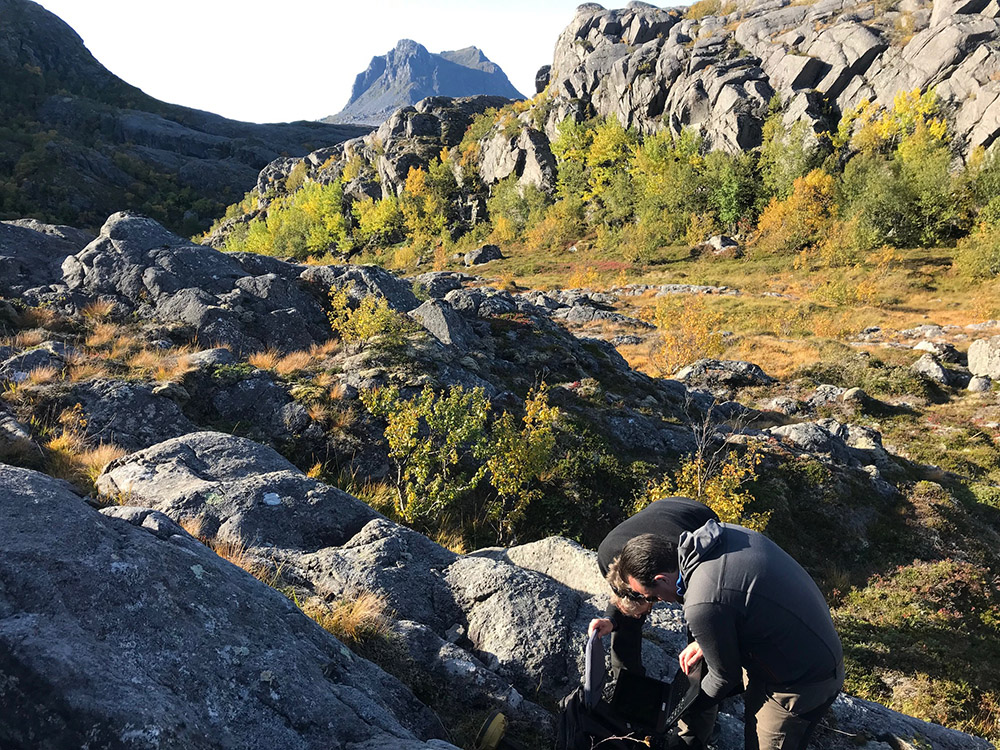More about Marine Ventures
More about Marine Ventures

Marine Ventures hosts joint archaeological research on seascapes in four corners of the world: Norway, Tierra del Fuego in Argentina, Canadian British Columbia and New Zealand/Australia. The study areas are ideal for scientific comparison as the distances rule out any cultural influence. Yet, these seascapes are joined in the fact that they demonstrate the wide variety of marine lifestyles farther back in time than most other global seascapes. At present, they are studied in a similar wide range of research projects. Our project will combine in-depth studies of these corners of the world, highlight the knowledge and understanding they bring forward as a whole, and benefit from the complimentary research skills, knowledge and perspectives this variation generates.
The sea is a dangerous and alien environment, and one in which man is poorly equipped to survive. It is a realm that man enters only with the support of artificial devices ... and only when weather and sea conditions allow
– Acheson, 1981
In essence, ‘Marine Ventures’ is about this dichotomy in all human–sea enterprises. On the one hand, the marine realm stands for affluent affordances in which humans strive to take part. There is the vast repertoire of marine resources, at beaches, near-coast and off shore, in turbulent waters of channels and shallows, in the blue deep, and at the very bottom of the subsea realms. There is also the capacity of water to lift everything that floats, and thus facilitate the movement of humans, equipment, valuables and most other things far and wide by boats.
On the other hand, there are the hazards that pertain in all human actions at sea. Humans are land-based beings – immersed in water, they will drown in a matter of minutes. Water also conducts heat far better than air; even temperate waters will cool and paralyze warm-blooded humans in a matter of hours, leaving them to the deadly depths.
These basic facts have been acknowledged by humans of all times, from Stone Age hunters to prospectors of offshore fossil fuel reserves in modern times. In the wake of this timeless knowledge, there are a next to limitless array of strategies to maximise marine affordances and counteract risks. Hardly any human action at sea evades this crucial interface between maximizing gains in conjunction with minimizing risks.
Actions at sea imply material devices, to move and acquire all that is sought in the blue deep. Floats and boats, paddles, oars, sails and engines, fishing lines, harpoons and nets, alike with modern devices to extract sub-sea mineral reserves or cultivate fish. Likewise, all risk-minimizing strategies carry material memories: the constant improvement of boats, waterproof or insulating garments, sheltered seas and harbours, to combine resources that are within acceptable risk-assessment, to delegate operations to non-human devices like traps and ROVs.
The deep-rooted dependency on ‘things’ in marine enterprises implies that archaeology and its enduring focus on material culture offers feasible strategies to acquire knowledge about marine lifestyles. Additionally, very few (if any) marine ventures are independent of land support, bases to rest, maintain and supply equipment, procure resources, or prepare for the next journey. These are places of vital functions in most (if not all) marine endeavours, places that contain and concentrate things of human–marine relations, that also are places of archaeological interest and recognition. Land support sites are not randomly placed, but related to where resources are found (e.g., fishing grounds or bird cliffs), safe and frequently trafficked sea-faring routes, or seascapes of reduced hazards (sheltered waters, natural harbours, etc.). Thus, throughout deep time, large parts of human—sea relations have found their way to the archaeological record and are possible to analyse by the discipline’s repertoire of scientific methods.
This is the inner core of the scholarly focus of ‘Marine Ventures – Comparing the Management of Resources, Mobility and Hazards in Holocene Seascapes from Four World Corners’. ‘Marine’ pertains to all that relates to the sea, ‘Venture’ to the fact that all human marine endeavours include risks, ‘Ventures’ in plural form in acknowledgement of a vast global variety.